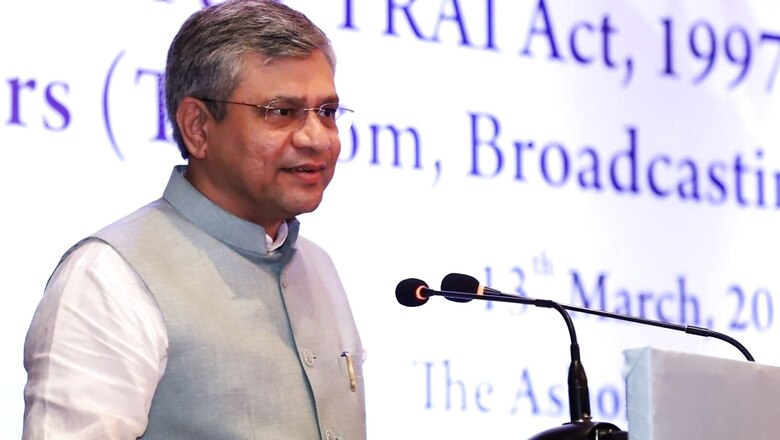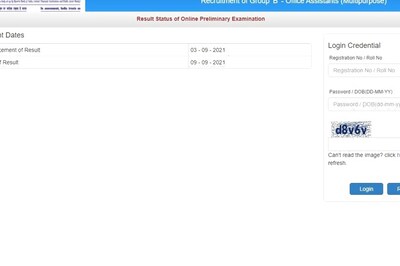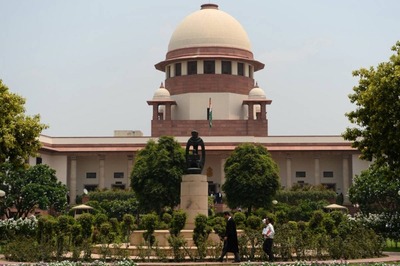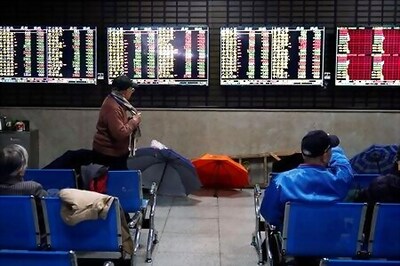
views
Telecom Minister Ashwini Vaishnaw on Wednesday said the Union Cabinet has approved a Rs 1,64,000-crore revival package for BSNL. The package, which will be utilised to de-stress the state-owned telecom company’s balance sheet, is also aimed at expanding BSNL’s fibre reach and improving the quality of the company’s services.
Briefing reporters on the decision taken by the Union Cabinet, the minister also said the administrative allocation of spectrum for 4G and 5G services for BSNL has also been given go-ahead, apart from approving its infrastructure expansion and upgrade. He added that after the implementation of the revival package, BSNL will be able to expand 4G services to raise ARPU (average revenue per user) to Rs 170-180.
The Rs 1.64-lakh-crore BSNL revival package comprises both cash and non-cash components. The cash infusion, including spectrum, capital investments and viability gap funding (VGF), will be around Rs 44,000 crore. And, the remaining Rs 1.20 lakh crore will be a non-cash component.
The package will be given in a staggered manner, spreading over four years. However, 70 per cent of the support will be extended within 1-2 years. The telecom minister said the result will be visible within the next two years and BSNL will roll out 4G services.
“With these measures, BSNL will be able to improve the quality of existing services, roll out 4G services and become financially viable. It is expected that with the implementation of this revival plan, BSNL will turn around and earn profit in FY 2026-27,” according to an official statement.
According to the official statement, to improve existing services and provide 4G services, BSNL will be allotted spectrum in 900/1800 MHz band administratively at the cost of Rs 44,993 crore through equity infusion. With this spectrum, BSNL will be able to compete in the market and provide high speed data using their vast network including in rural areas.
It said BSNL is in process of deploying Atmanirbhar 4G technology stack. To meet the projected capital expenditure for next 4 years, Government will fund capex of Rs 22,471 crore. This will be a significant boost to development and deployment of Atmanirbhar 4G stack.
“Despite the commercial non-viability, BSNL has been providing wireline services in rural/remote areas to meet the social objectives of the government. The government will provide Rs 13,789 crore to BSNL as a VGF for commercially unviable rural wireline operations done during 2014-15 to 2019-20,” it said.
The statement also said the authorised capital of BSNL will be increased from Rs 40,000 crore to Rs 1,50,000 crore in lieu of AGR (adjusted gross revenue) dues, provision of capex and allotment of spectrum.
Vaishnaw said the taxpayers’ money is being spent to revive BSNL and the company will be held accountable to clearly outlined benchmarks. The minister said the revival plan is also expected to create employment and the government expects 1 lakh jobs to be generated.
BSNL has a debt of 33,000 crore, and sovereign guarantee bonds will be issued by the state-owned firm to reduce the high cost of debt, Vaishnaw added. He said there is a possibility of issuance of sovereign bonds for MTNL also.
“The government will provide sovereign guarantee to these PSUs for raising long term loan. They will be able to raise long term bonds for an amount of Rs 40,399 crore. This will help restructuring existing debt and de-stressing the balance sheets. BSNL will re-issue preference share of Rs 7,500 crore to the government,” it said.
BSNL offers telecom services (both landline and wireless) across India except in Mumbai and Delhi – the two cities where MTNL is the state-owned telco.
The Union Cabinet has also approved the merger of BSNL and Bharat Broadband Network Ltd (BBNL), he said. BSNL has an optical fibre cable network of more than 6.83 lakh kilometres. After the merger, the state-owned company will get an additional 5.67 lakh kilometres of optical fibre, which is laid in 1.85 lakh village panchayats in the country using the Universal Service Obligation Fund (OSOF).
As of May 31, private access service providers held an 89.87 per cent market share of the wireless subscribers. State-owned firms BSNL and MTNL had a market share of only 10.13 per cent, according to data from the Telecom Regulatory Authority of India.
Read all the Latest News and Breaking News here




















Comments
0 comment